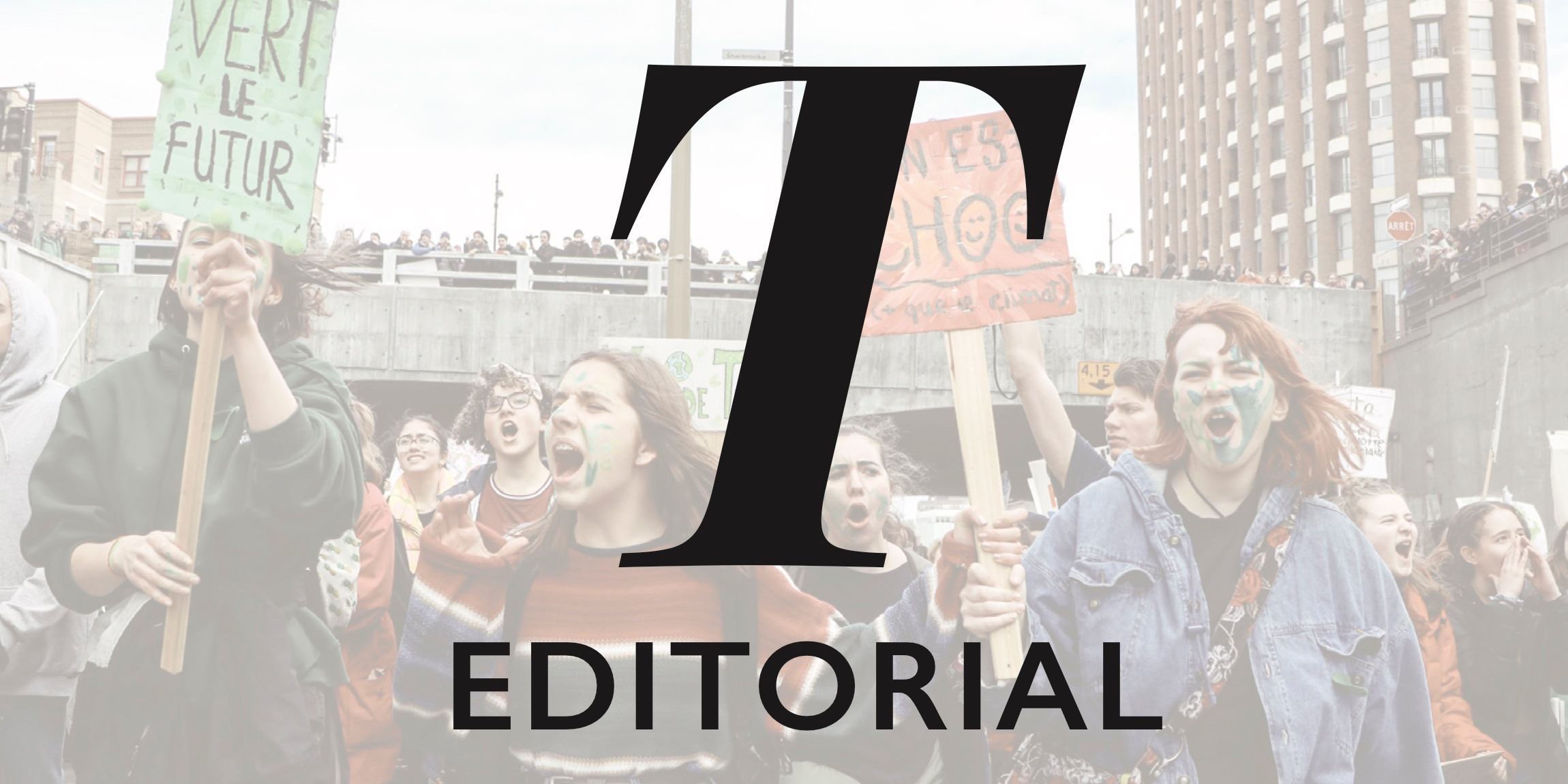The 2018–19 academic year has shown the power of student mobilization, through numerous grassroots campaigns, such as #ChangeTheName and the recent Global Climate Strike, among others. At McGill, activism serves an important role in the community, and student activists are behind most of the social progress that has occurred on campus over its history. While student activists have gathered momentum on a number of issues this year, it is crucial that as the summer approaches and student groups prepare for turnover, that this energy continues to grow.
Tomas Jirousek, Students’ Society of McGill University (SSMU) Indigenous Affairs Commissioner, started the #ChangeTheName campaign last year, achieving national news coverage. It is common for activists to face burnout, due to the emotionally and physically exhausting nature of their work, which may lead to plateaus in progress. However, this is not the case for #ChangeTheName. Instead, Jirousek employed a variety of strategies from organized demonstrations and petitions to open letters and op-eds in campus publications, engaging a range of students with the cause. Although Principal and Vice-Chancellor Suzanne Fortier has delayed her decision on the name until the end of this month, the #ChangeTheName campaign has achieved one success already: After a campaign from Jirousek, who stated that the name limited Indigenous students’ ability to comfortably use McGill athletics facilities, students voted against renewing the Athletics Facility Improvement Fee in the Winter 2019 referendum period.
Other campus issues, like McGill’s Policy against Sexual Violence, remain an uphill battle for many activists. On March 27, The Sexual Assault Centre of the McGill Students’ Society (SACOMSS) posted a statement on their Facebook page explaining their dissatisfaction with McGill’s recently-revised policy, most notably the policy’s exclusion of a ban on staff-student relationships. Associate Provost (Equity and Academic Policies) Angela Campbell cited the findings of Concordia’s Sexual Assault Policy Review Working Group in their decision, explaining that banning relationships between consenting adults would be illegal under Quebec privacy law. Students should not get complacent with McGill’s existing policy and special investigator, and must keep pushing until the necessary changes are made.
Divest McGill and the McGill chapter for the Walkout for Climate Justice launched student’s fight against climate change, to much success: On March 15, over 150,000 protesters in Montreal joined forces for a march for climate justice led by the student movement La planète s’invite à l’Université. McGill Senate even voted to endorse divestment; with more pressure, it is possible for students to get the Committee Advising on Matters of Social Responsibility (CAMSR) to advise the Board of Governors to divest.
Unfortunately, activists on campus still faces challenges. For example, while the culture of slacktivism, which includes sharing social media posts, lower activism’s barrier to entry, they are far less meaningful than forms of activism that require more labour, like demonstrations. The Walkout for Climate Justice proved that students are still capable of mobilizing for important causes; however, this protest was an exception to the rule.
Other causes, like the anti-racism march following the Christchurch massacre, were attended by hundreds of people, but were thousands short of the rallying potential demonstrated by students during the Walkout for Climate Change. All issues of social justice are interconnected; it is important therefore that activists acknowledge intersectionality when campaigning. For example, climate change will disproportionately affect communities of colour, indicating the importance of not only attending the Global Climate Strike, but also the anti-racism demonstration. Students should not just engage when it is convenient or only when it affects them. Solidarity on campus is important, and coalitions like Solidarity Alliance McGill provide a model for future initiatives. Activists should stand up for everyone’s collective rights, especially marginalized communities.
For some students, activism may not be a choice or not even an option. The new provincial Coalition Avenir Quebec (CAQ) government’s bill 21, the infamous secularism bill, which would bar anyone working in the public sector in a ‘position of authority’ from wearing visible religious symbols such as the hijab and kippah. For Muslims, Jews, Sikhs, and other students belonging to a religious minority, fighting this bill is necessary: They do not have the privilege to ‘choose’ to fight this. For others, like low-income students who have to work to support themselves, activism is not available as an option because they may not have the time or resources to engage in it. These situations illustrate the importance of fighting for the rights of marginalized voices, especially when many of them may not be able to do so for themselves.
Passionate student leaders sacrifice time, labour, and energy to organize successful campaigns to the benefit of all students, and their work deserves to be celebrated. The past year has seen a lot of progress, and as the year comes to an end, the Tribune is optimistic to see how future leaders change our campus.








